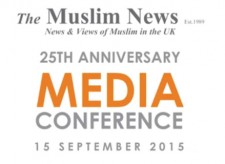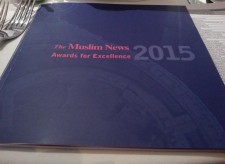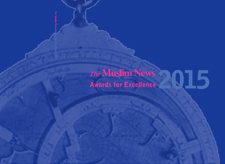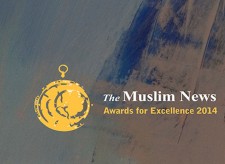The Bloomsbury Reader on Islam in the West. Edited by Edward E Curtis IV. London: Bloomsbury Academic. Pp280. PB. 2015. £24.99.
The editor of this volume is currently the Millennium Chair of Liberal Arts and professor of Religious Studies at the Indiana University School of Liberal Arts, and he has authored/edited several books about Islam, American and African religions including Muslims in America: A Short History (2009).
As many books have recently been published on ‘Islam in the West’ focusing particularly on the growing Muslim population in America, Canada and Europe, what is the justification for another volume on that topic? According to the editor, ‘This volume imagines Islam as part of, rather than as foreign to, the West.
For many readers, the idea that Islam is part of the West will cause little alarm. But for others, it may be discombobulating. In our age, one might be forgiven for simply assuming that Islam and the West are polar opposites. For anti-immigration activists in the West, the potent symbols of headscarves, Islamic law, mosques, and even footbaths…can represent an invasion or encroachment of foreign culture on Western territory.
In this contentious view of the world, contemporary Muslims are often framed as strangers who hold foreign values, and the word “crisis” is used to describe their supposed lack of integration and assimilation. Indeed, some Muslims and non-Muslims – from al-Qaeda sympathizers to Western political demagogues – gin up the idea that Islam and West are on an inevitable collision course, even locked in a struggle to the death.’ (p1)
Needless to say, the editor of this book profoundly disagrees with such a blinkered and twisted view. Instead, he argues that homo islamicus (‘Islamic man’) is not fundamentally different from the Western man, and that both have equally contributed to the development and progress of Western civilisation for more than a millennium, notwithstanding the avalanche of misinformation and propaganda that have been unleashed by the extremists from both sides of the argument.
Indeed, in his short but unusually insightful introduction to the book, the editor gently reminds the readers that, historically speaking, it is inconceivable to think or even imagine of a Western civilisation without the contribution of Muslims who were themselves Westerners.
In his own words, ‘What is called Western civilization would not exist without [Muslim] contributions to the literature, philosophies, scientific ideas, technologies, and styles of architecture. It is hard to imagine the rise of the West, for example, without Muslim scientific advances in medicine, pharmacology, chemistry, astronomy, algebra, trigonometry, and optics. Likewise, the poetry of new European vernacular languages was inspired by literary innovation in Arabic, the language most shared by Jewish, Christian, and Muslim people of letters in medieval Spain and Sicily.’ (p2)
Divided into two parts and seven sections, and 29 separate chapters contributed by Muslim and non-Muslim academics and writers, this volume provides a powerful, eloquent and an equally comprehensive overview of the Islamic West from the beginning of the eighth century to the present. Part 1 of the book consists of an interesting and insightful overview of Islamic history of the West, the presence of Muslims in the modern West and their role in the twentieth century. This part contains 13 articles contributed by Brian Catlos, Maria Rosa Menocal, Nathalie Clayer and Saladin Ambar, et al.
By contrast, part 2 of the book provides an overview of Islam in the contemporary West focusing on the practice of religion, the role of Muslim women in the development of Western Islam, in addition to exploring the question of citizenship, belonging, identity and the emergence of a unique Western Muslim culture of music, comedy and media representation. This part consists of 16 articles that have been contributed by Michelle Johnson, Asma Barlas, Bashir M. Nafi and Hisham Aidi, et al.
Although most of the articles contained in this volume had been previously published in different journals and books, the editor, to his credit, has successfully re-arranged them into a logical and thematic format that makes sense and reads very well.
In other words, this short but highly readable volume on Western Islam is an important and timely contribution as it convincingly argues that Muslims have been an integral part of the history, culture and heritage of the West for more than 14 centuries, thus they not only contributed to the development and progress of Western civilisation in the past, but also continue to play a pivotal role in shaping its present and future direction.
Far from being homogenous and monolithic, Western Islam is arguably more diverse than the Islam in the East as well as the West itself.
That is why Western Muslims continue to question, explore and interrogate what it actually means to be a Muslim and a Western at the same time considering their remarkably diverse ethnic, racial, national and cultural formations and backgrounds, whilst simultaneously bravely struggling to comply with the demands and dictates of their faith and its principles and practices. Who said that it was dull and boring to be a Western Muslim?
Muhammad Khan is currently completing a book on the Muslim Heritage of the West (forthcoming, Kube Publishing).
















